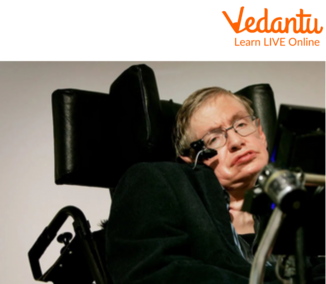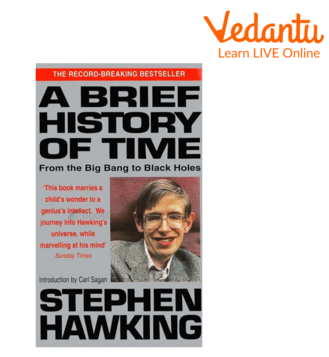




Biography of Stephen Hawking

Stephen Hawking
History of Stephen Hawking states that Stephen Hawking or Stephen William Hawking was born during a rather tumultuous time in human history, on January 8th, 1942 in Oxford, England. Coincidentally, his birth date marked exactly 300 years after the death of the father of Astronomy, Galileo Galilei.
Both of his parents were graduates of Oxford University. His father, Frank Hawking, was a medical researcher and his mother, Isobel Eileen worked as a secretary for a medical research institute. At Oxford, both of his parents pursued different subjects, his father read medicine while his mother read Philosophy, Politics, and Economy. He pursued a Bachelor’s degree in Physics from University College, Oxford, in 1962 and later went on to pursue a doctorate in Physics from Trinity Hall, Cambridge, in 1966.
For his schooling, he first attended the Byron House School in Highgate, London. He failed to learn to read at school. He later blamed the “Progressive methods” of the school for the same. Later, at the war’s end, the family moved to St. Albans. Hawkin’s father wanted his son to attend the Westminster School, but 13-year-old Stephen was sick on the day of the scholarship entrance test. So instead, he attended St. Albans School.
At the age of 21, in 1963, Hawking was diagnosed with ALS (Amyotrophic Lateral Sclerosis), which over the decades paralysed him. Hawkings died at the age of 76, on 14 March 2018 which coincidentally was the 139th birth anniversary of Albert Einstein. In another wild coincidence, it was noted that both Einstein and Hawking died at the age of 76.
Facts about Stephen Hawking
Stephen married twice in his lifetime.
During his time as a student at Oxford University, he found his place on the Oxford Rowing Team.
In 2009, Hawking received the Presidential Medal of Freedom which is the highest civilian honour in the United States.
Stephen made appearances in “The Simpsons” and “Star Trek”.
His best-selling book, A Brief History of Time, has sold more than 10 million copies from its publication in 1988 till now.

Stephen Hawking In Zero Gravity
Books by Stephen Hawking
Stephen Hawking was not only an inspiring cosmetologist but an immaculate writer as well. Throughout his life, he published quite a few books, some of which became best-selling books as well.
His publication catalogue includes the following:
The Large Scale Structure Of Space-Time(1973) which was co-authored with G.F.R. Ellis
Superspace and Supergravity (1981)
The Very Early Universe (1983)
A Brief History Of Time: From Big Bang to Black Holes (1988)
The Universe in a Nutshell (2001)
A briefer History of Time (2005)
The Grand Design (2010), which was co-authored with Leonard Mlodinow.

A Brief History of Time (Book)
Theories of Stephen Hawking
Stephen Hawking’s greatest “inventions” were his theories, especially his theories about black holes. The majority of Stephen Hawking’s work is in the field of general relativity and specifically on the physics of black holes. In 1971, he suggested the formation of an insurmountable number of objects containing a mass of as much as one billion tons all packed in the space of a proton, following the big bang.
In 1974, Hawking proposed a theory that black holes emit subatomic particles until all of their energy is exhausted and they finally explode, in accordance with the predictions of quantum theory.
Learning by Doing
1. Stephen Hawking was born on ________.
Ans: January 8th, 1942.
2. Stephen Hawking died on ________.
Ans: March 14th, 2018.
Solved Questions
1. Name some books written by Stephen Hawking.
Ans: Superspace and Supergravity (1981), The Very Early Universe (1983), A Brief History Of Time: From Big Bang to Black Holes (1988), The Universe in a Nutshell (2001), A briefer History of Time (2005).
2. From where did Stephen Hawking pursue his Bachelor’s degree in Physics?
Ans: Oxford University, England.
Summary
Stephen William Hawking was a theorist, physicist, cosmologist, and an inspiring author. He made remarkable leaps in the fields of cosmology and defined and shaped our understanding of the universe.
FAQs on Stephen Hawking Interesting Facts
1. What is Stephen Hawking most famous for?
Stephen Hawking is most famous for his groundbreaking work as a theoretical physicist and cosmologist, particularly his theories on black holes and the origin of the universe. He is also renowned for his best-selling book, "A Brief History of Time," which made complex scientific concepts accessible to the general public.
2. What was Stephen Hawking's groundbreaking theory about black holes?
Stephen Hawking's most significant theory about black holes, proposed in 1974, is that they are not entirely black. He theorised that due to quantum effects, black holes emit subatomic particles, now known as Hawking radiation. This process causes them to lose mass and energy over time, eventually leading them to shrink and completely evaporate or explode.
3. What disease was Stephen Hawking diagnosed with and how did it affect him?
Stephen Hawking was diagnosed with a rare, early-onset, slow-progressing form of Amyotrophic Lateral Sclerosis (ALS) at the age of 21. This neurodegenerative disease gradually paralysed him over decades, confining him to a wheelchair and eventually requiring him to use a sophisticated speech-generating device to communicate.
4. How did Stephen Hawking defy his initial medical prognosis?
When diagnosed with ALS in 1963, doctors gave Stephen Hawking a life expectancy of only two years. He defied these odds remarkably, living for more than 50 years after his diagnosis. His long survival is attributed to the slow-progressing nature of his specific form of the disease, combined with his immense willpower and the excellent medical care he received, allowing him to continue his life's work.
5. Besides science, what were some of Stephen Hawking's other notable achievements and interests?
Beyond his scientific contributions, Stephen Hawking had several other notable achievements and interests. These include:
- Authoring multiple best-selling books, with "A Brief History of Time" selling over 10 million copies.
- Receiving the Presidential Medal of Freedom in 2009, the highest civilian award in the United States.
- Making pop culture appearances on shows like "The Simpsons" and "Star Trek: The Next Generation".
- Experiencing zero gravity aboard a specially modified aircraft in 2007.
6. Why is Stephen Hawking's book "A Brief History of Time" considered so important?
"A Brief History of Time" is considered a landmark book because it successfully bridged the gap between complex theoretical physics and the general public. It explained profound concepts like the Big Bang, black holes, and the nature of time in a clear and understandable way, sparking worldwide interest in cosmology and making science more accessible to millions of readers without a scientific background.
7. What were the main topics Stephen Hawking explored in his books?
The central theme across Stephen Hawking's books, including "The Universe in a Nutshell" and "The Grand Design," was to explain the fundamental laws governing the universe. He explored major questions about cosmology, such as:
- The origin and fate of the universe.
- The nature of space and time.
- The physics of black holes and the Big Bang.
- The search for a unified theory that could explain all forces of nature.









